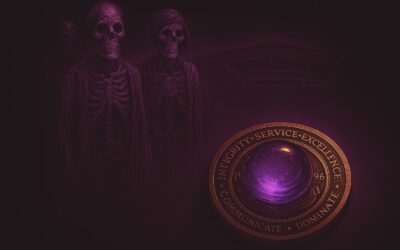“Never attribute to maliciousness that which is attributable to ignorance.” — LtGen Carl G. O’Berry
Some leadership lessons don’t come from textbooks or formal training—they’re etched into our memories, sometimes quite literally. In my memoir, The Accidental Executive: Finding Purpose in Public Service, I devoted an entire chapter to the unexpected wisdom I found while serving in the Pentagon as part of the USAF “Comm Community.”
It was on the fifth floor of the Pentagon, in what’s known as “The Hallway,” where legends of Air Force communications and information systems policy once walked. The corridor was lined with portraits of pioneers—visionaries who crafted secure networks, safeguarded data streams, and shaped technological innovation in defense of our nation’s mission. This was more than just a workspace. It was the digital frontier of the Air Force.
At the door of my three-star boss’s office hung a brass plaque, quiet in its elegance but resounding in its message: “Never attribute to maliciousness that which is attributable to ignorance.”
Every time I left that office, I’d see my reflection in it. And each time, I was reminded of my duty—not just to lead, but to uplift. That quote challenged me to approach leadership with empathy and accountability. If someone failed a task, I asked myself: Had I given them the tools and training to succeed? Had I done my job?
It wasn’t just a plaque. It was a philosophy that shaped how I led others—and how I understood my role in building a stronger, more informed team.


